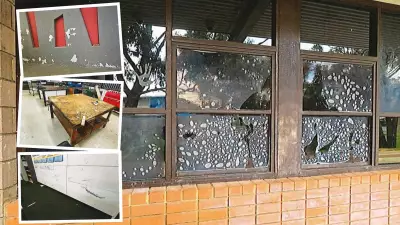
The traditional classroom is undergoing a radical transformation across the Asia Pacific region as technology opens up unprecedented educational opportunities for students from Sydney to remote Pacific islands.
Pandemic Accelerates Digital Shift
What began as an emergency response during the 2020 pandemic has evolved into a permanent revolution in how education is delivered. Universities throughout Australia, Singapore, and Indonesia are now offering entire degree programs that can be completed online, while hybrid models allow students to attend virtual lectures while collaborating on projects in real-time.
In developing economies, institutions are deploying innovative low-bandwidth solutions to reach rural and remote learners who previously had limited access to quality education. This technological shift provides students with flexibility that simply didn't exist before - the ability to study part-time, work remotely, or upskill mid-career without relocating.
Regional Partnerships Driving Innovation
Collaboration between universities and edtech startups is yielding impressive results across the region. In the Philippines and Vietnam, new partnerships are delivering micro-credentials - short, stackable courses that provide practical skills in high-demand fields like data science, digital marketing, and renewable energy systems.
Meanwhile, in Pacific island nations, cloud-based platforms are enabling international collaboration that was previously impossible. Students in Fiji, Samoa, and Papua New Guinea can now participate in virtual seminars with peers from Australia or New Zealand, broadening both their academic and cultural horizons.
Australian Aid has played a crucial role in supporting these digital education partnerships across the Pacific. Through funding broadband upgrades, training educators in online teaching methods, and helping universities share digital content, these initiatives are leveling the playing field for remote and underserved communities.
Preparing for Future Job Markets
Digital learning extends far beyond convenience - it's about preparing students for rapidly evolving job markets. As automation, artificial intelligence, and green technologies transform industries, employers increasingly seek adaptable workers who can learn and reskill continuously.
Universities are responding with flexible, career-focused education models. Micro-credentials, project-based learning, and virtual internships are becoming central features of modern curricula. Students can complete short online courses in areas like cloud computing or sustainability management, then stack them into larger qualifications over time.
In countries like Malaysia and Indonesia, online vocational platforms are partnering with universities to deliver blended training programs aligned with local industry needs. This approach not only helps graduates find employment faster but ensures regional businesses have access to skilled talent.
Overcoming Remaining Challenges
Despite significant progress, reliable internet access, affordable devices, and digital literacy remain substantial barriers in parts of Southeast Asia and the Pacific. Many universities are addressing these challenges by creating low-cost, mobile-friendly learning tools that can function with limited connectivity.
Regional cooperation continues to be essential. Shared learning networks and open-access educational resources allow smaller institutions to benefit from the same high-quality materials used by larger universities. For students, this creates a fairer, more connected system where talent, rather than geography, determines opportunity.
In countries such as Laos and Timor-Leste, pilot programs are introducing blended learning in secondary schools, establishing foundations for future university pathways. These early interventions are already demonstrating results, with improved engagement and higher participation rates among young learners.
The digital classroom is redefining how knowledge moves across borders. When a lecturer in Sydney co-teaches a course with an academic in Suva, or when a student in Jakarta earns certification from a New Zealand university, the potential for collaboration multiplies exponentially.
This interconnected approach to education strengthens not only individual skills but regional ties as well. As more universities share expertise, platforms, and research, the Asia-Pacific region is building a shared digital future rooted in cooperation and inclusion.





